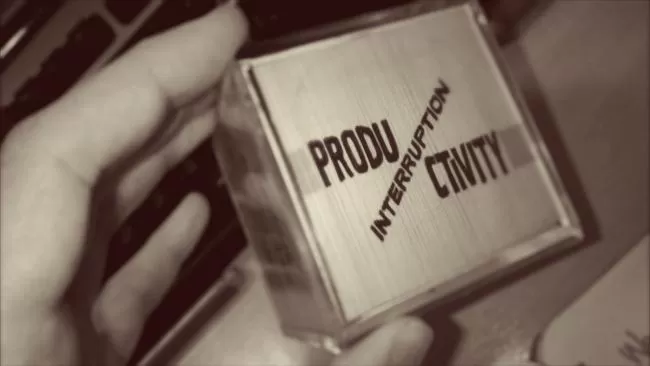Handling Unanticipated Interruptions at Work

One of the most predictable workplace variables that successful scientists can learn to control for is an unexpected work interruption. These breaks in service can range from changes in staffing and equipment malfunctions to anticipated breaks in the work due to the economy and/or inclement weather. Naturally, during such events (predictable or not), you will experience a range of reactions including awkward excitement, anxiety, fear, panic, frustration, anger or even avoidance and denial. As a future professional, you will be expected to have the skills to manage such reactions and continue to act professionally as a leader. In fact, when you are applying to graduate/professional schools and jobs, you probably be asked questions about how you handle ambiguity or unanticipated changes in the workplace. Here are some helpful suggestions to help you cope with these disruptions in a positive way.
Accept the unexpected. Plan for it. Follow the leader. You will handle workplace surprises with more confidence if you accept the reality that they will happen in general. To prepare yourself, ask your PI (or incorporate) plans to manage your research study. For example, if you are in a lab, review and follow established procedures for managing all aspects your research project during challenging times. If none exist, then consider taking the lead in designing a plan based on what you learn in the current situation. Feel free to consult others who have survived the interruptions in the past and follow their suggestions.
Heed the warning Read your emails from administration, watch the news, listen to co-workers who you trust and your PI to be able to forecast interruptions. If you get advanced warnings, then take them seriously as discussed earlier. Avoidance will only increase your anxiety and leave you to struggle.
Take a deep breath. Be Optimistic Communicate using a realistic and positive tone to your co-workers and subordinates to stay resilient during this time. For example, you could say, “While this is inconvenient, we need put the following procedure in action to maintain the integrity and future focus of our project moving forward.” Also utilize reframe any negative thinking and shift to a can-do attitude. For example, shift from a typical woe is me response such as “I cannot believe this is happening to me,” or “this is ridiculous” to “I (we) can handle this. Let’s put a plan together to keep the work moving forward”
Respond professionally Using the problem-solving strategy of emotionally detaching and focusing on the moment will allow you to stay calm and in control of your emotions, and analyze the situation. Focusing on what is lost or interrupted has the potential will give the impression that you are ill equipped to handle change and ambiguity. By focusing on the present situation and setting up a plan, this will engage you in moving towards the future and communicate trust and optimism from your co-workers.
Take care of yourself. Practice wellness. In these situations, be sure to factor in your personal wellness as part of the plan. In OITE, we encourage you to practice self-care during these times and suggest that you read and incorporate the strategies suggested Dr. Sharon Milgram’s blog about how to keep stress from derailing your work and life. For those of you who may have anticipate a break in work, we suggest viewing Michael Sheridan’s Special Advisor for Diversity and Wellness Programs article, Waiting is Hard to Do, for suggestions on incorporating wellness activities while waiting. These plans can include taking walks, going to a movie, or even seek counseling to help you cope.
If you feel that you need further support, feel free to utilize all OITE workshop, counseling, and advising services to help you manage during these times. Our extended readers are encouraged to utilize similar resources in your area.


 Assume the employer is in your corner While tricky, this is a part of developing your relationship with the company and answering an interview question. So approaching it from a positive place will benefit you. When speaking with recruiters, many say that they are hoping to land the best and brightest talent and are eager to make you a good offer that you will accept. Therefore, they are asking what you would like to have in advance, so they can begin to craft an appealing offer. Learn how to negotiate and what is negotiable before you interview Review the archived OITE Careers blogs about
Assume the employer is in your corner While tricky, this is a part of developing your relationship with the company and answering an interview question. So approaching it from a positive place will benefit you. When speaking with recruiters, many say that they are hoping to land the best and brightest talent and are eager to make you a good offer that you will accept. Therefore, they are asking what you would like to have in advance, so they can begin to craft an appealing offer. Learn how to negotiate and what is negotiable before you interview Review the archived OITE Careers blogs about